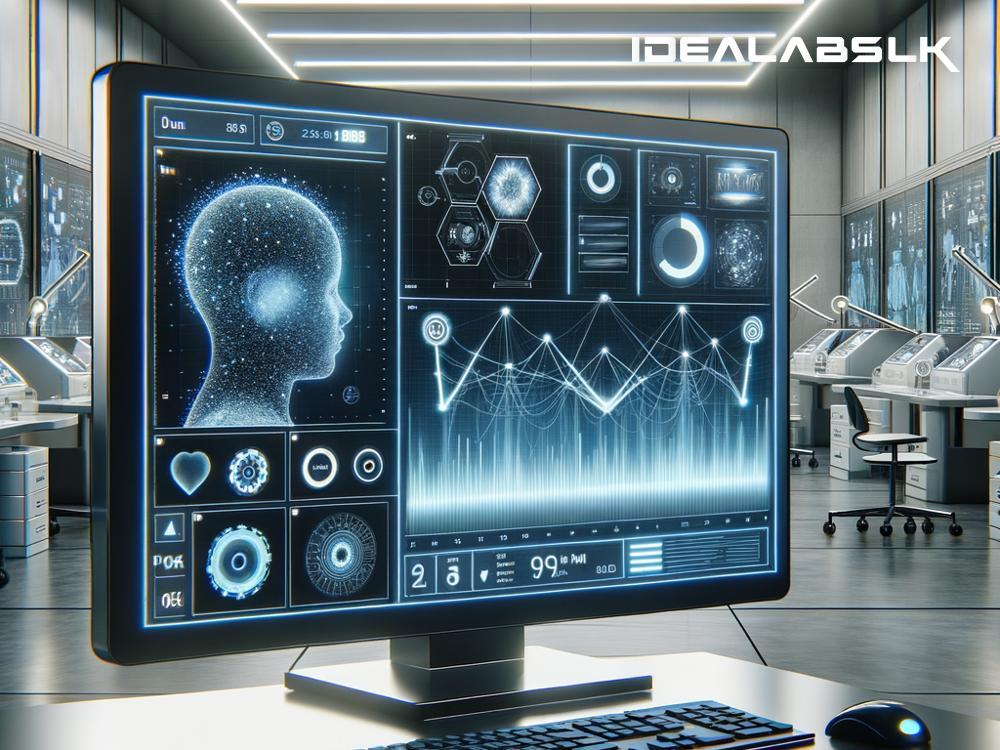How AI is Becoming a Game-Changer in Identifying Sleep Troubles: The Stories of Sleep Apnea and Insomnia
Do you toss and turn at night, or wake up feeling like you barely slept at all? You're not alone. Millions of people worldwide have trouble sleeping, suffering from conditions like sleep apnea and insomnia. But here’s a piece of good news! Artificial Intelligence (AI) is stepping up, offering innovative solutions to help diagnose these pesky sleep disorders. Let’s unravel together how AI is revolutionizing the night for many.
Understanding the Sleep Bandits: Sleep Apnea and Insomnia
Before diving into the AI magic, let's talk briefly about our main culprits: sleep apnea and insomnia. Sleep apnea is like the sneaky thief of breath, where your breathing stops and starts throughout the night. It leaves you gasping for air and interrupts your night's rest. On the other hand, insomnia is that wide-awake feeling when your body screams for sleep, but your brain is on a marathon, keeping you awake.
Both conditions can ruin a good night's rest, leaving you exhausted and affecting your health and daily performance. Historically, diagnosing these issues involved sleep studies at medical centres, which can be inconvenient and uncomfortable. Enter AI, with its smart glasses, changing the game from the comfort of your home.
AI to the Rescue: Simplifying the Diagnosis of Sleep Disorders
AI is like that smart friend who notices everything but in a non-creepy way. For sleep disorders, it works by analyzing sleep patterns and identifying irregularities that might indicate a problem. Here’s how it's making a difference:
1. AI and Sleep Apnea: Spotting the Breathless Moments
AI technology is now being used in devices that can be worn or used at home, tracking your sleep without a visit to the clinic. These devices keep an eye on your breathing, heart rate, and even your oxygen levels while you sleep. The AI then takes this data, looking for signs of sleep apnea, such as pauses in breathing or moments of gasping for air. By identifying these patterns, AI can alert you and your doctor to potential issues much sooner, possibly before you even realize there's a problem.
2. AI and Insomnia: Understanding the Sleepless Nights
When it comes to insomnia, AI is like a detective piecing together clues. It uses information from various sources, like wearable devices that monitor your activity levels, heart rate, and even your exposure to light. The AI examines how these factors could be influencing your sleep, looking for patterns that suggest insomnia. It can recognize when you're having trouble falling asleep or staying asleep, helping uncover potential triggers for your insomnia. This insight can be a game-changer for developing personalized treatment plans.
The Future Is Bright (But Not Too Bright for Sleep!)
AI's role in diagnosing sleep disorders is just beginning to unfold, with ongoing advancements promising even more accurate and easy-to-use solutions. Imagine a future where your smartwatch not only tracks your steps but also keeps an eye on your sleep health, nudging you with personalized tips for a better night's sleep.
One of the beautiful things about AI in sleep medicine is its ability to learn and adapt. As it gathers more data, it gets better at spotting the subtle signs of sleep disorders, offering hope for even more precise diagnoses and tailored treatments in the future.
Embracing Healthier Nights with Open Arms (and Eyes Closed)
The journey towards conquering sleep disorders like sleep apnea and insomnia is becoming less daunting, thanks to AI. No longer do individuals have to face the prospect of sleepless nights or interrupted slumber with dread. Instead, they can look forward to harnessing the power of technology to uncover the mysteries of their sleep patterns and work towards achieving restful nights.
By bringing diagnostics into the home and making them more accessible, AI is not just offering a new pathway to better sleep; it's also weaving the promise of improved health and wellbeing into the fabric of our lives. As we continue to explore the capabilities of AI in healthcare, the dream of a future where everyone has access to the sleep they need is becoming more of a reality.
So, if you're lying awake at night, wondering why sleep seems like a distant dream, remember: AI is working tirelessly, even as you strive to rest. The night might just be getting a lot more restful thanks to these smart, caring machines.

